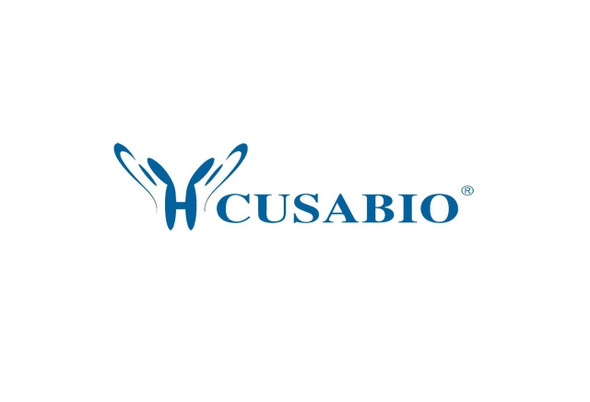Cusabio Polyclonal Antibodies
PSMD14 Antibody | CSB-PA018904OA01HU
- SKU:
- CSB-PA018904OA01HU
- Availability:
- 3 to 7 Working Days
Description
PSMD14 Antibody | CSB-PA018904OA01HU | Cusabio
PSMD14 Antibody is Available at Gentaur Genprice with the fastest delivery.
Online Order Payment is possible or send quotation to info@gentaur.com.
Product Type: Polyclonal Antibody
Target Names: PSMD14
Aliases: 26S proteasome non-ATPase regulatory subunit 14 (EC 3.4.19.-) (26S proteasome regulatory subunit RPN11) (26S proteasome-associated PAD1 homolog 1), PSMD14, POH1
Background: Component of the 26S proteasome, a multiprotein complex involved in the ATP-dependent degradation of ubiquitinated proteins. This complex plays a key role in the maintenance of protein homeostasis by removing misfolded or damaged proteins, which could impair cellular functions, and by removing proteins whose functions are no longer required. Therefore, the proteasome participates in numerous cellular processes, including cell cycle progression, apoptosis, or DNA damage repair. The PSMD14 subunit is a metalloprotease that specifically cleaves 'Lys-63'-linked polyubiquitin chains within the complex. Plays a role in response to double-strand breaks (DSBs) : acts as a regulator of non-homologous end joining (NHEJ) by cleaving 'Lys-63'-linked polyubiquitin, thereby promoting retention of JMJD2A/KDM4A on chromatin and restricting TP53BP1 accumulation. Also involved in homologous recombination repair by promoting RAD51 loading.
Isotype: IgG
Conjugate: Non-conjugated
Clonality: Polyclonal
Uniport ID: O00487
Host Species: Rabbit
Species Reactivity: Human, Rat
Immunogen: Peptide sequence from Human 26S proteasome non-ATPase regulatory subunit 14 protein (264-283AA)
Immunogen Species: Human
Applications: ELISA, WB, IHC, IF
Tested Applications: ELISA, WB, IHC, IF; Recommended dilution: WB:1:1000-1:5000, IHC:1:20-1:200, IF:1:50-1:200
Purification Method: Antigen Affinity Purified
Dilution Ratio1: ELISA:1:2000-1:10000
Dilution Ratio2: WB:1:1000-1:5000
Dilution Ratio3: IHC:1:20-1:200
Dilution Ratio4: IF:1:50-1:200
Dilution Ratio5:
Dilution Ratio6:
Buffer: Preservative: 0.03% Proclin 300
Constituents: 50% Glycerol, 0.01M PBS, pH 7.4
Form: Liquid
Storage: Upon receipt, store at -20°C or -80°C. Avoid repeated freeze.
Initial Research Areas: Cell Biology
Research Areas: Epigenetics & Nuclear Signaling;Cell biology















